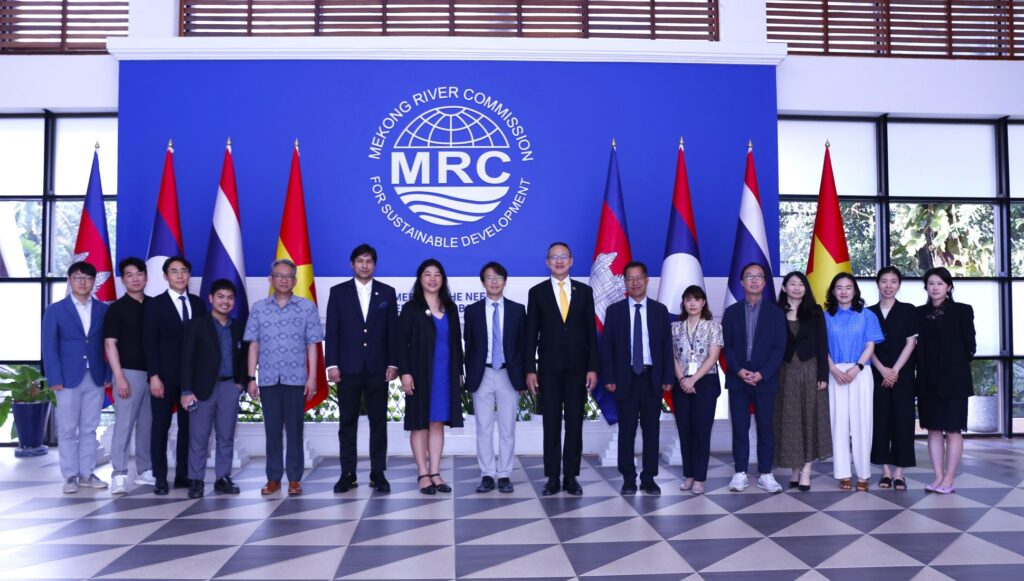June 28, 2024 – Vientiane, Lao PDR & July 1, 2024 – Bung Khla Sub-district, Bueng Kan Province, Thailand
The national pilot projects under the “Triangular Cooperation Project on Sustainable Development in the Lower Mekong River Basin based on the Water-Energy-Food Nexus for 2021-2025” (RoK UNOSSC Facility Phase 3), also known as the “P-LINK” project, were officially launched on June 28 in Lao PDR and on July 1 in Thailand. These initiatives unite all project stakeholders to advance sustainable development in the Mekong River Basin by addressing challenges in the water, energy, and food sectors through technological and innovative solutions.
Supported by the Ministry of Science and ICT of the Republic of Korea, the P-LINK project is a collaborative effort involving the UN Office for South-South Cooperation, the Mekong Institute (MI), the Mekong River Commission Secretariat (MRCS), and the Science and Technology Policy Institute. As the implementing partner, MI plays a key role in capacity building to support the successful implementation of the national pilots.
The Lao PDR pilot focuses on two major initiatives. The first is the enhancement of a centralized data center and situation room at the national level to improve water management. The second initiative aims to establish a comprehensive flood forecasting and early warning system for the Xebangfai River Basin in Khammouane Province.
The pilot in Thailand introduces a Smart Water Management initiative designed to address local challenges such as high water loss, increasing water demand due to population growth, and limited technical expertise in integrated water management. This initiative will be implemented in Moo 1, 2, and 3 of Bung Khla Sub-district, Bueng Kan Province.
In conjunction with the pilot launches, the Third Steering Committee Meeting of the P-LINK project was held on the afternoon of June 28 at the MRCS. During this meeting, the Steering Committee reviewed the 2023 work progress, approved the 2024 work plan and fund allocation, and discussed risk mitigation strategies, scalability, and sustainability plans for the project.
The successful launch of these pilots marks a significant step forward in advancing sustainable development in the Lower Mekong River Basin, demonstrating the effectiveness of triangular cooperation in addressing complex regional challenges. To support all these efforts, we need to pay attention:
- Balancing the needs and interests of all parties requires deep sincerity, ample patience, and enthusiasm for development.
- Innovation and application make leapfrog development possible. Transforming this possibility into reality and sustaining it relies on local communities’ willingness to embrace change and continuous learning, supported by robust institutions.








